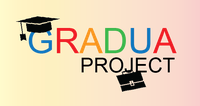
Unibo structure involved: Department of Statistical Sciences
Unibo Team: Angela Montanari, Silvia Cagnone, Laura Anderlucci
Project Duration in months: 36
Start Date: 15/10/2017
End Date: 14/10/2020
Budget: 886.919,00 euro
Unibo Budget: 49.860,00 euro
Coordinator: Agricultural university of Tirana (Albania)
Partners:
University of Tirana - Albania
University of Arts, Tirana – Albania
Polytechnic University of Tirana – Albania
University of Medicine, Tirana – Albania
European University of Tirana – Albania
Polis University – Albania
Catholic University "Our Lady of Good Counsel"- Albania
Albanian University - Albania
Alma Mater Studiorum Università di Bologna - Italy
University of Siena – Italy
University of Barcelona - Spain
University Institute of Lisbon - Portugal
Chambers of Commerce & Industry, Tirana - Albania
Inter-University Consortium AlmaLaurea - Italy
Ministry of Education and Sport - Albania
Description
The Republic of Albania recognizes the central role of “education as a public good able to promote development” (Law no. 80/2015). The new 2015 law paved the way to an overhauling reform for improving standards in education, link HE with the labour market. Universities in Albania, with some exceptions, are at initiative stage of technological innovation needing the creation of modern ICT based structures and a trained staff. Also, no systematic information system on HE are available with phenomena of mismatch of skills in the youth market, as the current youth unemployment rate indicate. The project addresses the National priorities of enhancing university-enterprise cooperation (fostering graduates employability) and improving education quality in Albania by developing in the beneficiary Universities the graduates’ data platform, as an ICT based integrated tool for the monitoring of HE performance and its long lasting impact on society; the improving of educational supply and the matching of the demand for and supply of qualified labour. The platform will allow the collection of comprehensive data on HE system, with the information provided directly by the graduates; an evidence at disposal of policy makers on which to base decisional processes. The platform will also allow enterprises to search and compare graduates certified CVs according to specific skill giving the graduates a more democratic access to labour market and reducing skill mismatch. The project will support the Albanian universities in meeting society needs thanks to intensive knowledge, best practice transfer and reccomendation development: the activities planned will enhance university staff skills on graduates’ career development, developing professional traineeship and structured cooperation with the business world, effective tools for career guidance and students' orientation on the labour market, advanced and competitive research tools for HE monitoring and Albanian labour market analysis.
Specific objectives:
The specific objectives are: adapt and transfer AlmaLaurea and EU best practices to Albanian stakeholders through setting up the IT based platform in the nine beneficiary universities, available also to students and firms. To increase capacities for education reform process (provide sustainable online assessment tools for continuous collection of updated information and the release of the 1st graduate profile survey). To improve the quality of the education system in Albania according to international standards thanks to competence transfer from EU partners. To strengthen university/labour market linkages (IT based platform for demand/supply matching; assessment of skill needs by firms and best practices for internship promotion). To support "open" and sustainable market for high qualified human capital (online recruitment platform and tools for graduates and local firms). Make the initiative sustainable through system migration to the Albanian Ministry of Education and Sport.

